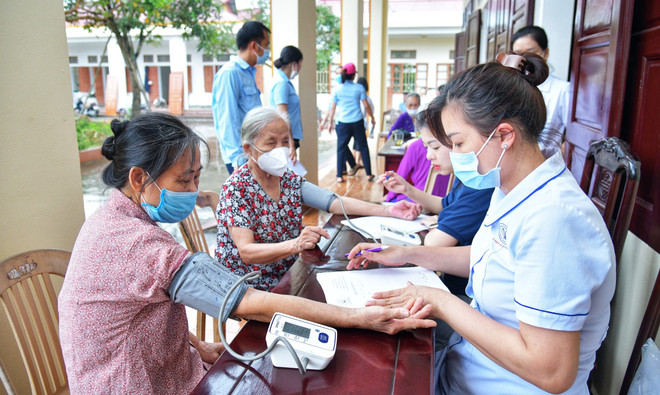She said the Vietnamese Governmentstarted its current tenure with numerous difficulties due to the emergence ofnew COVID-19 variants.
In response to the pandemic, itlaunched a widespread and rapid vaccination campaign in late 2021. By the endof 2022, each Vietnamese had been given an average of 2.7 doses of COVID-19vaccines, much higher than the average in Asia (1.9) and Europe (1.8).
The success of this vaccinationcampaign created the basis for fast economic recovery last year, when Vietnam wasthe only in the region to post a growth rate exceeding the forecasts releasedby the World Bank and the International Monetary Fund, Khalidi noted.
The global economic growth has sloweddown in 2023 as central banks around the world have raised interest rates to curbinflation. Facing that fact, the Vietnamese Government has issued effectivepolicies to protect domestic consumers from adverse impacts of inflation. The countryrecorded the highest inflation of 4.9% in January, and the rate fell to 2.1% inJuly.
Responding tosuch external challenges as the slow rebound of purchasing power and a plungein exports, the Government has flexibly carried out fiscal and monetarymeasures to stimulate domestic demand, she went on.
In terms ofthe Government’s efforts to ensure social security, she said the socialsecurity system’s coverage has expanded considerably over recent years,especially in people’s access to health insurance.
 The social security system’s coverage has expanded considerably over recent years, especially in people’s access to health insurance. (Photo: laodong.vn)
The social security system’s coverage has expanded considerably over recent years, especially in people’s access to health insurance. (Photo: laodong.vn)Talking aboutVietnam’s efforts to reach climate targets, Khalidi held that the transitionfrom fossil fuels to renewable energy will enhance energy security, reducepollution, and stabilise energy prices in the long run.
The approval of National PowerDevelopment Plan VIII has been broadly welcomed as a demonstration of thecountry’s resolve to achieve net zero emissions by 2050, she continued,stressing the importance of effectively coordinating this plan with the JustEnergy Transition Partnership (JETP).
The JETP, pledging to mobilise 15.5million USD to help with the local transition, is a joint effort by Vietnam andthe International Partners Group, comprising Canada, France, Germany, Italy,Japan, the UK, the US, the EU, Denmark, Norway, and the Glasgow FinancialAlliance for Net Zero.
It includes ambitious targetsabout reducing greenhouse gas emission and coal use in power generation and alsocalls for protecting vulnerable groups that may face risks during the energy transitionprocess like workers of industries and low-income earners affected by energyprice increases.
UNDP isactively joining the Vietnamese Government in analysing economic and socialimpacts of this transition, including identifiying the groups and localitiesneeding additional public assistance, according the official./.






























